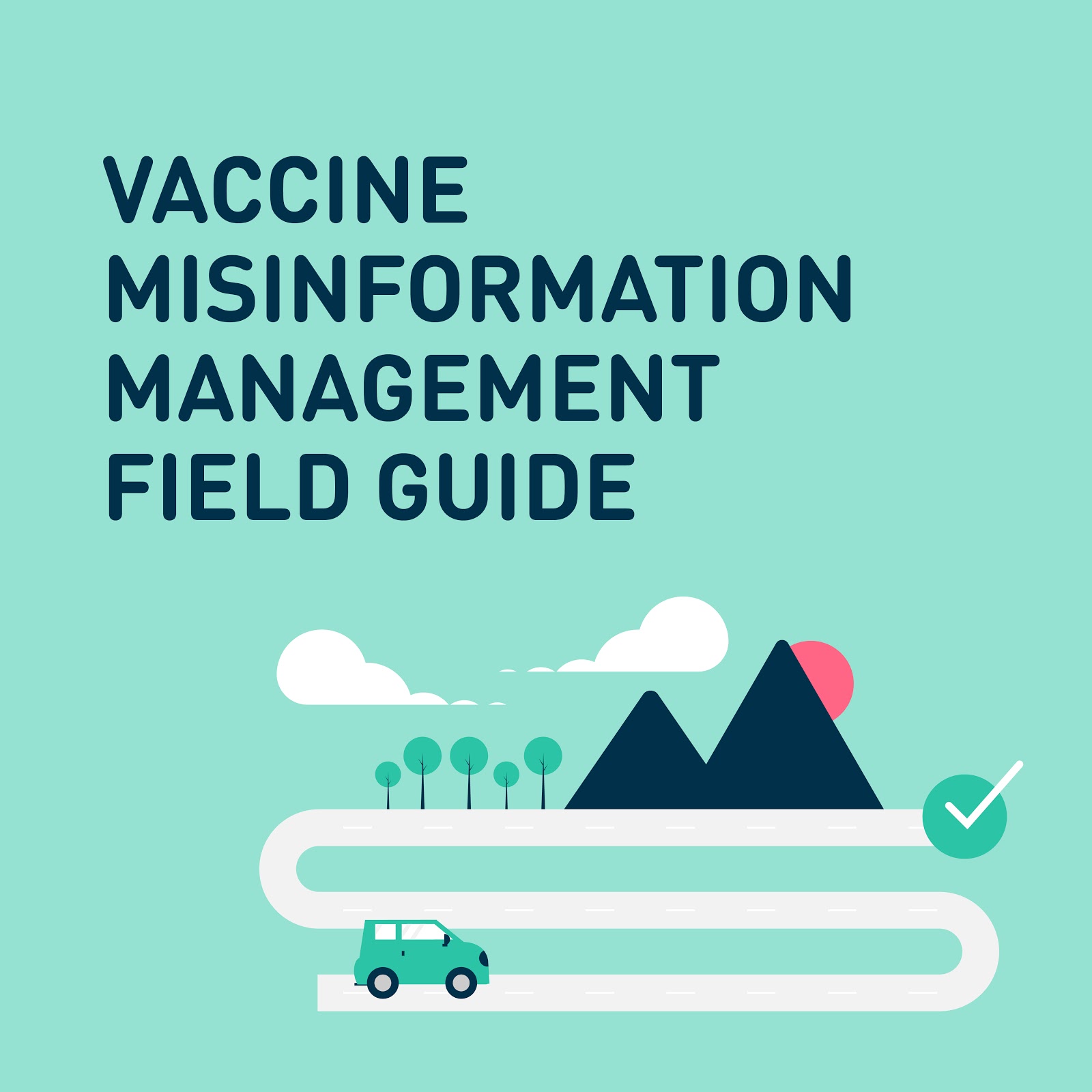The novel SARS-Cov-2 virus has triggered two parallel pandemics: a biological one which has spread to every country in the world, and a social pandemic of misinformation – an infodemic – spreading across social networks.
As Dr Tedros, Director-General of the WHO put it: ‘We’re not just fighting an epidemic; we’re fighting and infodemic. Fake news spreads faster and more easily than the virus and is just as dangerous.’

Vaccines have been sucked into this vortex of confusing information which ranges from the innocently misleading to the intentionally deceiving. Vaccine-critical messaging increased more than two-fold compared to pre-COVID-19 levels.
This infodemic threatens the rollout of vaccines against COVID-19 and new oral polio vaccines as well as potentially undermining routine immunization programmes.
In some countries, population subgroups report lower vaccine confidence – often linked to trust in health authorities. For example, UK surveys show ethnic minority groups are currently less positive about COVID-19 vaccination, while Arab towns in Israel were initially wary of vaccine programmes (until confidence was restored by an influx of Jewish Israelis keen to fill empty vaccination appointments).
It’s time to push back.
To help vaccine advocates, immunisation managers, communication specialists and others, UNICEF has published the Vaccine Misinformation Management Field Guide. Developed in collaboration with First Draft, the Public Good Projects and Yale Institute for Global Health, it offers an introduction to vaccine misinformation and many actionable recommendations for addressing misinformation and, just as important, the normal vaccine-related questions people may have. .
Along with an overview of how and why false information spreads, the publication sets out a simple strategic framework structured around listening, understanding and engaging with the public on this crucial issue. Practical guidance on how to build social listening systems and set up rumour logs are provided, along with case studies from around the world. It also includes evidence-guided advice on cutting-edge techniques such as inoculating or ‘prebunking’ against misinformation.
As COVID-19 immunisation programmes begin around the world, the publication could hardly be more timely. It can guide countries in the development of a comprehensive misinformation management strategy.
‘The infodemic is a serious problem and many practitioners in the field are having to tackle rumours and falsehoods in their communities on a daily basis,’ explains Dr Claire Wardle, US Director of First Draft. ‘There is a science on how best to do this, and this field guide is an attempt to get this expertise into the hands of as many people as possible as quickly as possible.’
Dr Wardle said the guide underlines the need for community responses to misinformation, and the importance of giving people the skills necessary to talk to their friends and family about the risks for sharing misinformation.
‘It also describes the most common types of misinformation, the most effective ways to frame debunks, and how to emphasize the tactics used by people trying to push false information’ she said. ‘It’s designed to provide practical tips for those on the front lines seeing the real world impact of the infodemic.’
Prof. Saad Omer, Director of the Yale Institute of Global Health stressed that the Guide builds on existing and emerging evidence in a fast-growing field. ‘It would be naive to imagine that one of the most consequential immunisation programmes in history would not be challenged by misinformation and disinformation,’ he told Vaccines Today. ‘That is why it is important to have this multidisciplinary Guide that can be deployed at scale. It’s exciting to bring together the best of research, synthesis and training in a practical publication.’
Prof. Omer said the Guide is intentionally concise, yet nuanced enough to be applied at country level. Describing it as an ‘evidence-based but usable playbook’, he added that it could be used by immunisation programmes, but also by the media, voluntary groups and non-traditional players who are now taking a close interest in vaccination.
‘We should not fly blind: it is crucial to conduct and apply research during the pandemic,’ Prof Omer said. ‘One of the silver linings of the situation we are in is the strong appetite among policymakers for using and developing knowledge on misinformation and on what kind of messages and messengers are most valued by the public.’
Dr Joe Smyser, CEO, Public Good Projects, said the world is trying to catch up to an infodemic of misinformation, and there are a lot of challenges ahead. This is compounded by the fact that many of the organizations at the coalface of the infodemic have spent the past year battling the COVID-19 pandemic.
‘This guide is a joint effort by organizations who know vaccines, know public health, and understand misinformation and how to counter it,’ he said. ‘It’s a service done for the global network of organizations serving communities in every country, and we hope it’s thoughtful and real-world guidance makes their very difficult and very important jobs a little easier.’
Dr Smyser said ‘misinformation is our new normal; it’s not going away’. This means that many of the ways in which experts and agencies have communicated about vaccines have to be urgently updated. ‘The Vaccine Misinformation Management Guide is a good start to a whole new way of practicing public health.’
The Guide was written by Angus Thomson, Senior Social Scientist with UNICEF and member of the Vaccines Today Editorial Board; and Gary Finnegan, Editor of Vaccines Today. It is available in English and French with Spanish, Italy and Arabic versions coming soon.





Robert David Cohen
January 28th, 2021
Bravo! Exactly what we need!